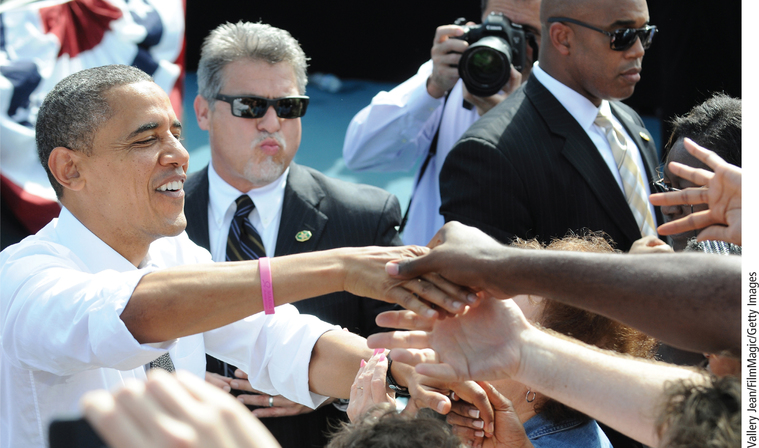9.1 Social Choice:
The Impossible Dream 9

- 9.1 An Introduction to Social Choice
- 9.2 Majority Rule and Condorcet’s Method
- 9.3 Other Voting Systems for Three or More Candidates
- 9.4 Insurmountable Difficulties: Arrow’s Impossibility
Theorem - 9.5 A Better Approach? Approval Voting
The basic question of social choice, of how groups can best arrive at decisions, has occupied social philosophers and political scientists for centuries. One primary example of a social-choice problem is the selection of a “good” voting system. Indeed, voting is a subject that lies at the very heart of representative government and participatory democracy.
Social-choice theory attempts to address the problem of finding good procedures that will turn individual preferences for different candidates into a single choice by the whole group. An example of such a choice would be the selection of the winner of an election. The goal is to find such procedures that will result in an outcome that “reflects the will of the people.”
This search for good voting systems, as we shall see, is plagued by a variety of counterintuitive results and disturbing outcomes. In fact, it turns out that one can prove (mathematically) that no one will ever find a completely satisfactory voting system in an election with three or more candidates.